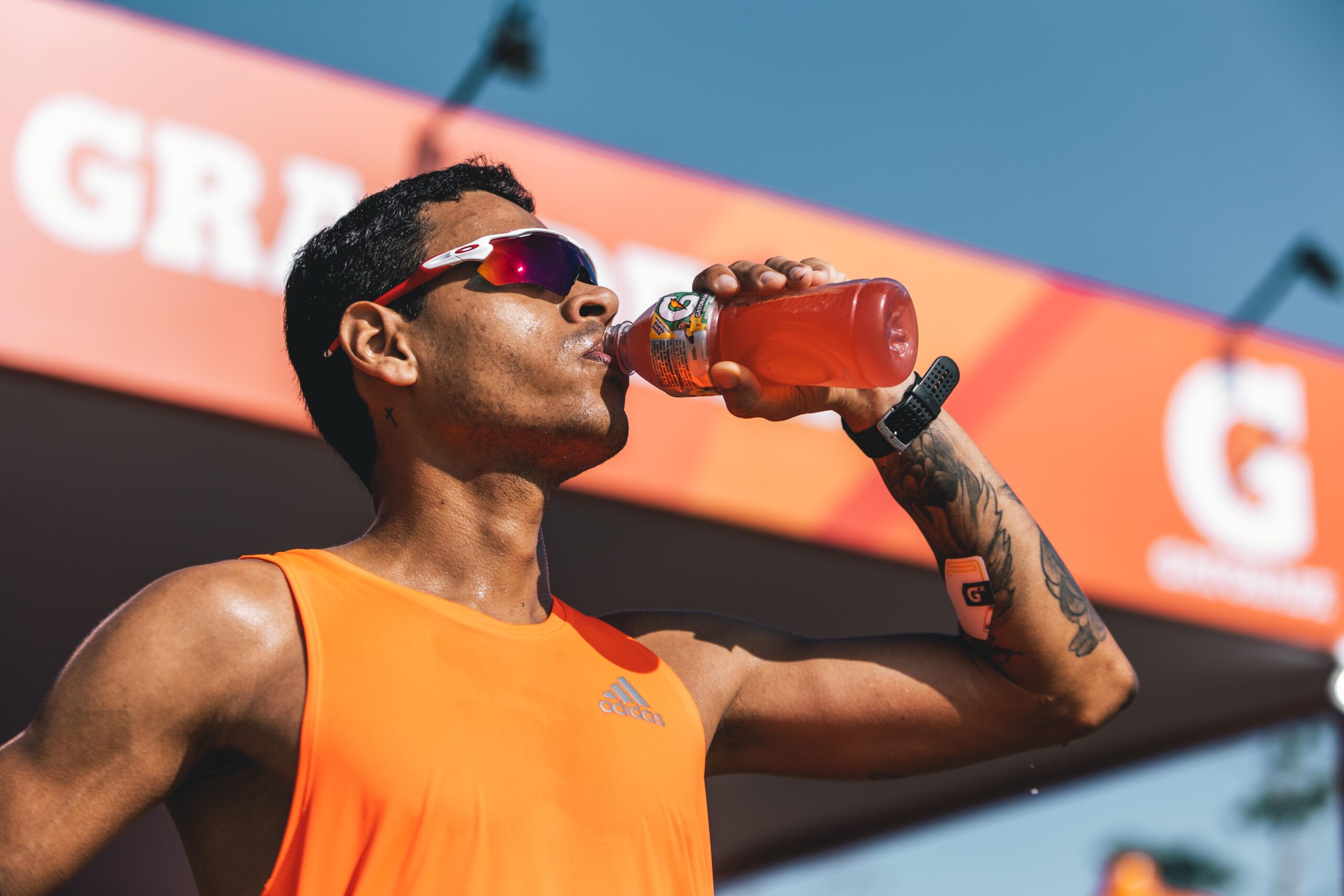Marathon Training Plan; What to eat during Marathon training

As a runner, you know that proper nutrition plays a vital role in your performance, endurance, and recovery. Understanding what to eat before, during, and after a race is crucial.
Discover the best nutrition for before, during and after your race to help you power through your runs and reach your personal best. The period leading up to your race is when your body’s energy stores are primed. Proper pre-race nutrition can help you avoid ‘hitting the wall’ and ensure you have enough energy to last the full race and finish with a good time.
Pre-race nutrition: what to focus on
- Carbohydrates: Carbs are your primary source of energy. About 2-3 days before the race, increase your carbohydrate intake to top off glycogen stores. Good foods for this include whole grains, fruits, vegetables, and legumes.
- Hydration: Start hydrating well in advance. Aim for clear or pale-yellow urine as an indicator of good hydration. Avoid too much caffeine and alcohol, as they can increase dehydration.
- Protein: Include lean sources of protein to support muscle repair and maintenance. Fish, poultry, eggs, beans, and tofu are excellent choices.
- Fats: Choose healthy fats like avocados, nuts, seeds, and olive oil for sustained energy.
- Timing: Consume a balanced meal 3-4 hours before the race. This should include a mix of carbohydrates, protein, and fats. A smaller snack 30-60 minutes before the race, rich in easily-digestible carbs, can provide an extra energy boost.

During-Race Nutrition: Staying Fuelled and Hydrated
Maintaining energy levels during a race is crucial to prevent fatigue and performance decline. Proper hydration and fuelling strategies are key:
- Hydration: Sip water or an electrolyte drink regularly. Listen to your body’s thirst cues and drink fluids based on that.
- Carbohydrates: Consume easily digestible carbohydrates during longer races (half marathons and beyond) to maintain blood sugar levels. Energy gels, chews, or sports drinks can be beneficial.
- Electrolytes: For races lasting over an hour, consider electrolytes to replace sodium, potassium, and other minerals lost through sweat.
- Experiment: Practice your race-day nutrition during training runs to ensure your stomach can handle the chosen foods and timing.
Post-Race Nutrition: Recovery and Repair
After crossing the finish line, your body needs replenishment and repair. Here are some post-race nutrition tips:
- Carbohydrates: Kickstart recovery by consuming carbohydrates within 30 minutes to replenish glycogen stores. A banana, energy bar, or a sports drink can be effective.
- Protein: Include a protein source to assist muscle recovery. Aim for lean protein options like lean meat, poultry, fish, eggs, or plant-based sources.
- Hydration: Continue to rehydrate with water or an electrolyte drink to replace the fluids you have lost.
- Antioxidants: Include foods rich in antioxidants, such as berries, leafy greens, and nuts, to help reduce inflammation caused by exercise.
- Balanced Meal: Within 2-3 hours post-race, have a balanced meal containing carbs, proteins, and healthy fats to support your body’s recovery process.

Nutrition is key to the success of any runner. Tailoring your pre-race, during-race, and post-race food to your individual needs and preferences can make a huge difference in your performance and recovery.
By eating and drinking wisely, you’ll be better equipped to tackle every mile of your running journey.
Remember, experimenting during training is key to finding the nutrition plan that works best for you.